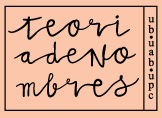STNB2022 (35è any)
Universal quadratic forms and indecomposables over totally real fields
Ponents
Daniel Gil
Resum
A quadratic form with integer coefficients is said to be universal if it represents all positive integers. This property is a very classical topic in arithmetic. For instance, the famous Lagrange four-square theorem states that the sum of four squares is a universal quadratic form. This definition can be generalized to the case where the coefficients lie in a totally real number field, making use of the embeddings. A major problem in this area is to determine how many unknowns are needed so that a quadratic form is universal. In this talk, we present a groundbreaking result by Kala and Blomer that connects this question with the study of additively indecomposable elements in the ring of integers, as well as a geometric method due to Kala and Tinková to determine indecomposables in a number field. We shall view how these techniques have been applied to study the universality of quadratic forms for Shanks' family of simplest cubic fields.
Fitxers
